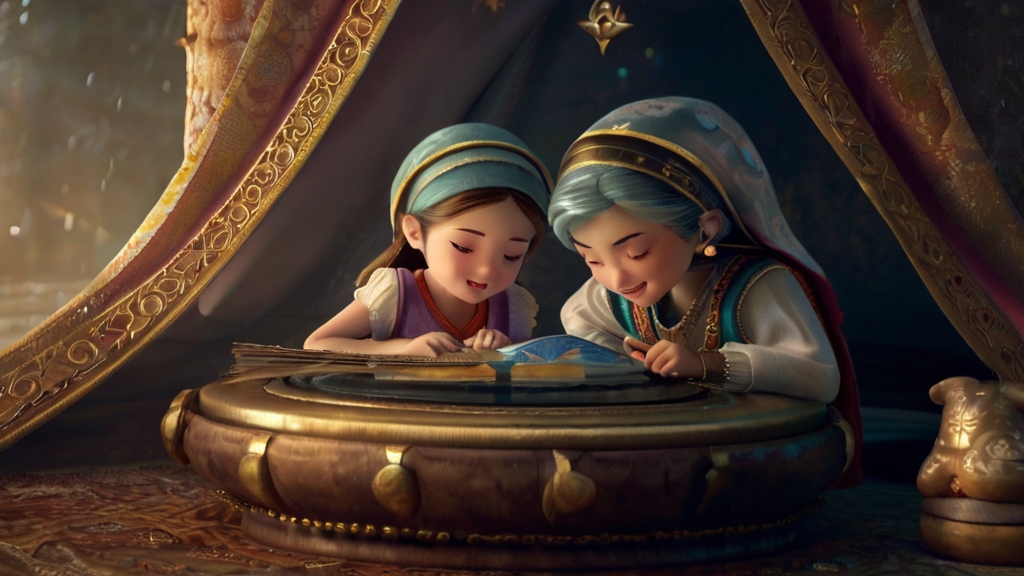In the intricate tapestry of human civilization, storytelling has long been recognized as a fundamental aspect of cultural identity and heritage. From ancient myths and legends passed down through generations to modern narratives woven into literature, film, and digital media, stories serve as a powerful tool for shaping and preserving the collective identity of communities around the world. In this comprehensive analysis, we delve into the profound influence of storytelling on cultural identity, examining its role in shaping perceptions, fostering connections, and preserving heritage across diverse societies.
The Roots of Cultural Identity:

At the heart of every culture lies a rich tapestry of stories that reflect its history, values, beliefs, and traditions. These narratives, often rooted in oral tradition, serve as a means of transmitting cultural knowledge from one generation to the next, preserving the collective memory of a community and reinforcing its sense of belonging and identity. Whether through folktales, religious texts, or historical accounts, storytelling plays a central role in defining the cultural identity of societies worldwide.
Representation and Visibility:
In addition to preserving cultural heritage, storytelling serves as a means of representation and visibility for marginalized communities whose voices have historically been silenced or marginalized. Through literature, film, art, and other forms of creative expression, storytellers from diverse backgrounds have the power to challenge stereotypes, amplify underrepresented perspectives, and assert their presence in the cultural landscape. By sharing their stories, they not only reclaim their narratives but also contribute to a more inclusive and equitable society.
Fostering Empathy and Understanding:
Storytelling has the unique ability to foster empathy and understanding by allowing individuals to step into the shoes of others and experience the world from different perspectives. Through the power of narrative, people can develop a deeper appreciation for the diversity of human experiences, challenging preconceived notions and fostering compassion and solidarity across cultural divides. By sharing stories that highlight shared values, struggles, and aspirations, storytellers have the potential to bridge cultural gaps and promote cross-cultural dialogue and collaboration.
Preserving Heritage and Tradition:
As societies evolve and change over time, storytelling plays a vital role in preserving cultural heritage and tradition. Through the retelling of myths, legends, and historical narratives, communities ensure that their collective memory endures, passing down knowledge, wisdom, and cultural practices from one generation to the next. By celebrating their heritage through storytelling, communities reaffirm their identity and strengthen their sense of continuity and connection to the past.
The Digital Age and Storytelling:
In the digital age, storytelling has taken on new forms and formats, with the rise of social media, podcasts, blogs, and other digital platforms providing unprecedented opportunities for individuals to share their stories with a global audience. While digital storytelling offers new avenues for creativity and expression, it also presents challenges in terms of authenticity, accuracy, and ethical considerations. As storytellers navigate the complexities of the digital landscape, they must remain mindful of the power and responsibility inherent in shaping cultural narratives in an increasingly interconnected world.
Harnessing the Transformative Power of Storytelling:
In today’s rapidly changing world, storytelling has emerged as a catalyst for social change and cultural transformation. By harnessing the transformative power of narrative, individuals and communities can challenge dominant narratives, advocate for social justice, and envision a more inclusive and equitable future. From grassroots movements to global campaigns, storytelling serves as a vehicle for amplifying marginalized voices, sparking meaningful dialogue, and catalyzing positive change. As we embrace the potential of storytelling to shape cultural identity, let us also recognize its capacity to inspire action, foster resilience, and ignite the collective imagination towards a brighter, more interconnected world.
In conclusion, the power of storytelling in shaping cultural identity is undeniable. From ancient oral traditions to modern digital narratives, stories have the ability to transcend boundaries, unite communities, and preserve the rich tapestry of human experience. By embracing the diverse voices and perspectives that storytelling affords, we can foster empathy, understanding, and appreciation for the myriad cultures that enrich our world. As we continue to navigate the complexities of an ever-changing global landscape, storytelling remains a timeless and invaluable tool for preserving heritage, challenging stereotypes, and celebrating the unique identity of every culture.
Related:Unlocking the Dreamworld: A Comprehensive Expedition into Lucid Dreaming Mastery

